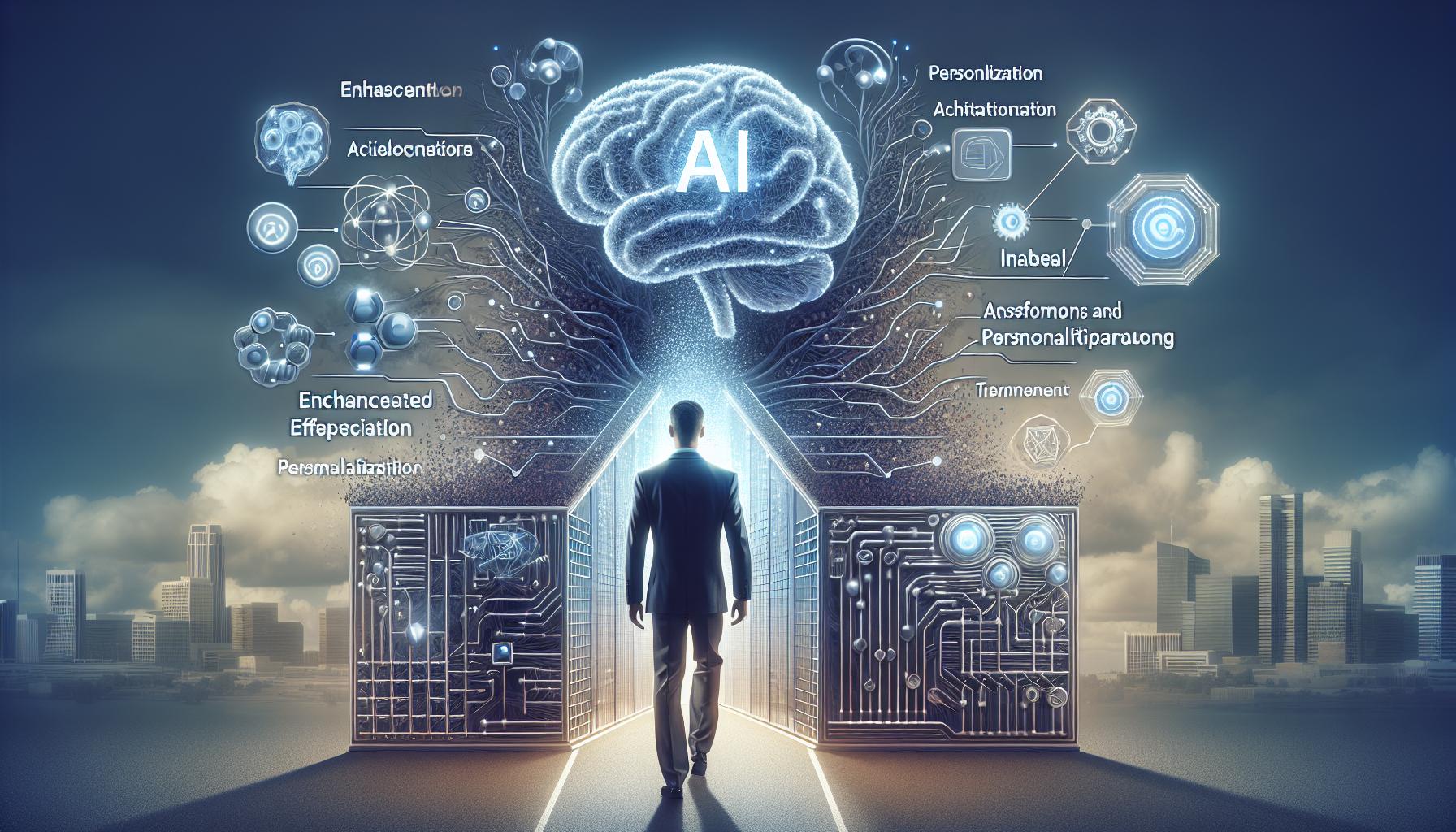
Artificial Intelligence (AI) is no longer a future hope—it’s the catalyst for business transformation in 2025. From routine automation to opening new levels of creativity and productivity, AI is revolutionizing the way organizations compete, operate, and expand. The future is not only imminent; it’s already arrived, and companies that are focusing on AI adoption are leading the charge towards tomorrow’s economy.
Why is AI now an imperative for business?
AI’s effect is wide-ranging and instantaneous. Businesses that incorporate AI into operations acquire a razor-sharp competitive edge by:
Automating repetitive tasks frees employees to focus on creative and strategic work.
Examining enormous datasets with extraordinary speed, revealing hidden trends, risks, and opportunities not perceivable by human sight.
Tailoring customer experiences at scale, leading to improved satisfaction and loyalty.
Making adaptability as well as efficiency survival techniques in an ever-changing world, AI is a package with tools that equips companies to run better, react quicker, and provide greater value to customers.
Read More: How AI-First Software and Platforms are Transforming Businesses
Principal Uses of AI in Contemporary Business
1. Efficient Operation
Artificial intelligence-based tools like Robotic Process Automation (RPA) are automating workflows across various industries. By performing functions such as data entry, payroll, and compliance reports, these tools enhance productivity and minimize human error. For instance, Target’s AI-based Store Companion application assists workers in accessing information immediately, enhancing staff productivity as well as customer service.
2. Customer Service Transformation
AI-powered chatbots and virtual assistants are transforming customer interaction. From instantaneous, 24/7 replies to customized suggestions and quick problem-solving, they are making business operations more efficient with reduced costs and improved customer satisfaction. Michael Kors, for instance, has made use of AI assistants to improve online shopping, proving the worth in real-time.
3. Predictive Maintenance
Manufacturing and logistics businesses implement AI to analyze equipment information and anticipate upcoming needs for maintenance. This reduces downtime, maximizes resource efficiency, and prolongs critical machine lifespan.
4. Data-Driven Decision Making
Tools such as Google Cloud’s Vertex AI support real-time analysis, by which companies can identify early market trends and take data-driven strategic decisions. This responsiveness is key in such rapidly evolving markets as ours.
5. Supply Chain Optimization
AI processes information from various touchpoints to predict demand, control stock, and optimise logistics, cutting waste and enhancing efficiency.
Transformations in Industry: Successes in Reality
Retail: Tools powered by artificial intelligence are revolutionizing customer service, marketing, and e-commerce. Retailers are leveraging generative AI for automating call transcriptions, smart replies, and personalized store experiences. Conversational interfaces and personalized shopping advisors powered by AI are revolutionizing online shopping.
Medical facilities take advantage of AI for appointment management, clinical documentation, and claims processing. There are round-the-clock hospital agents enabled by AI that reduce administrative load and improve targeted outreach to patients.
Financial services: Virtual agents and search powered by AI accelerate fraud detection, enhance customer support, and deliver customized financial advice. The tools ensure high levels of personalization and support in an era of self-service.
Recruitment: Firms such as Allegis Group have used AI models to drive automation for tasks like managing candidate profiles and creating job descriptions, with an added benefit of increased recruiter efficiency and less technical debt.
Trends and Investment: The tech behemoths are driving this AI revolution with huge investments. Google, Microsoft, and Amazon invested billions in AI companies and projects in 2024 alone. This “AI arms race” is pushing the development forward at an ever-faster rate and making cutting-edge AI tools available to businesses regardless of size.
Success Factors and Lessons Learned:
More than mere technology is needed to successfully implement AI—it needs objectives that are clear, a strong data infrastructure, and an ongoing commitment to learning. The success stories of companies such as Target and Michael Kors demonstrate that tying business goals with AI projects and training investment yields improved results.
Yet not all AI projects are successful. Frustrations like McDonald’s drive-thru experiment remind us all to have realistic goals, conduct proper tests, and to make sure that business needs and capabilities match.
The Road Ahead: AI’s Expanding Role
The business role for AI is only going to expand. With multimodal AIs (those that analyze text, images, and other inputs) moving into mainstream use, they will reshape product design, customer interaction, and even industry architecture. The global market for AI is on track to hit $390.9 billion by 2025, marking the magnitude and velocity of this shift.
Conclusion:
Seize the Future—Today, AI integration isn’t a luxury; it’s a necessity for businesses aiming to thrive in the digital era. From operational efficiency to customer delight, predictive analytics to creative innovation, AI is the force multiplier that’s redefining what’s possible. The business future is now—and it’s driven by AI. The future belongs to those embracing it, with others running the risk of being left behind. The time is now: integrate, innovate, and unleash the full potential of AI for your business.
Connect with us on LinkedIn for unique insights and the latest updates on AI Solutions from ViitorCloud! Together, let’s get ready for the future!